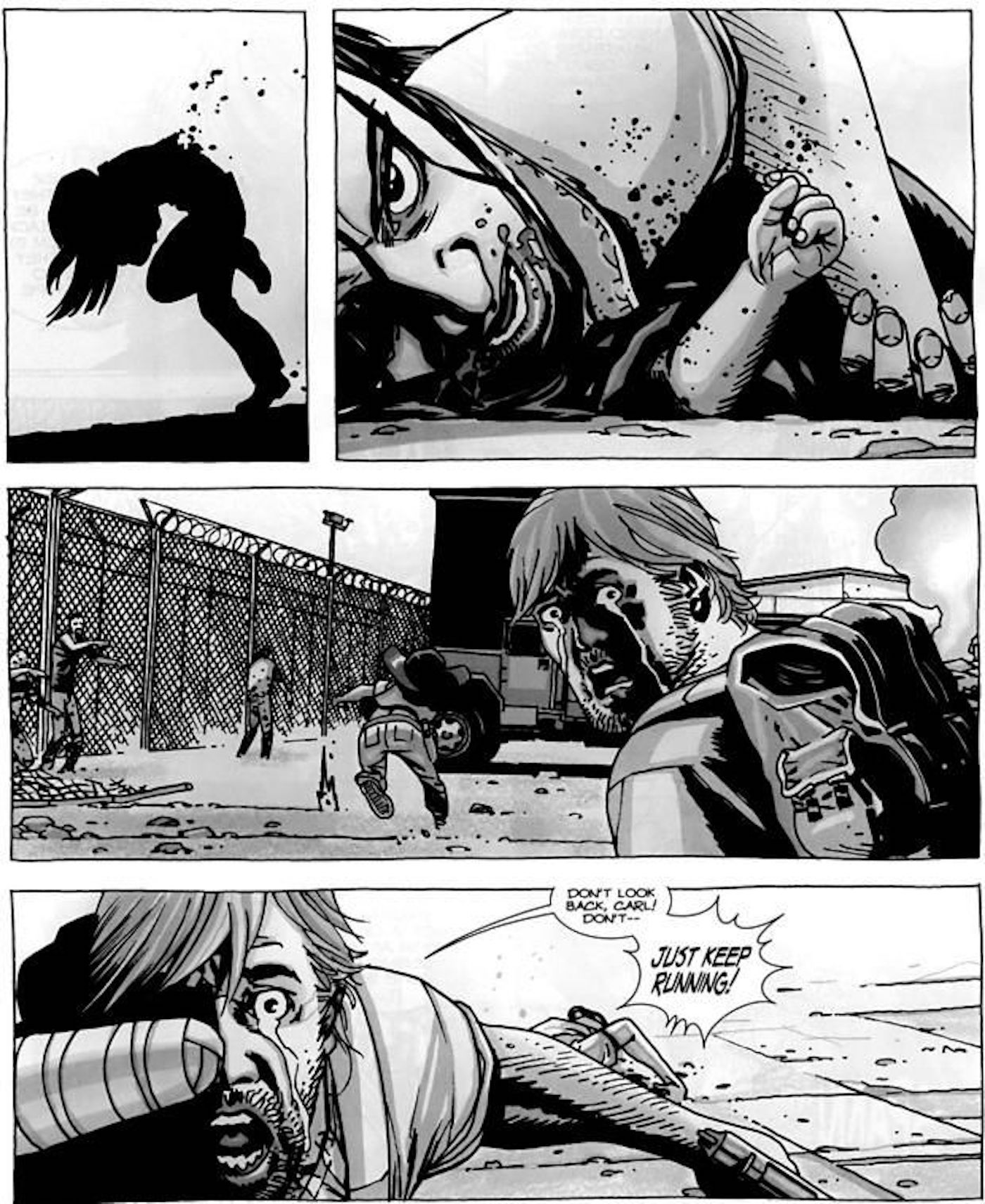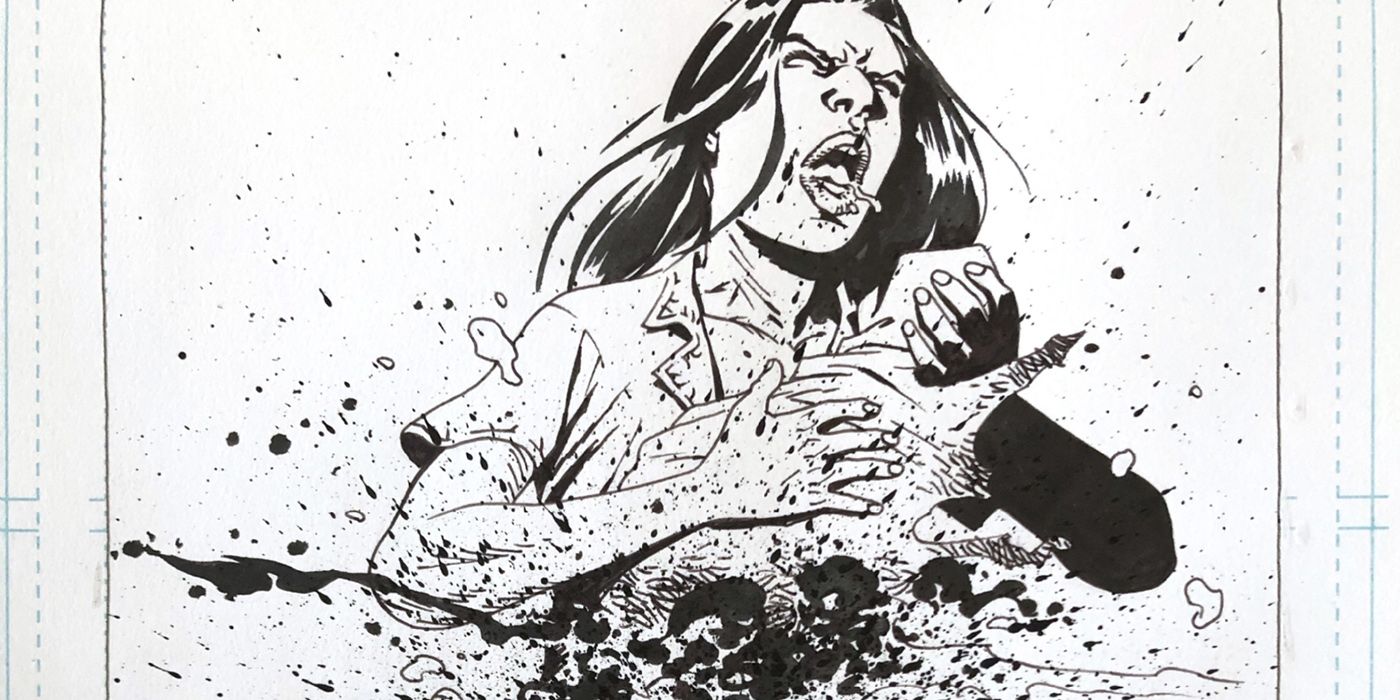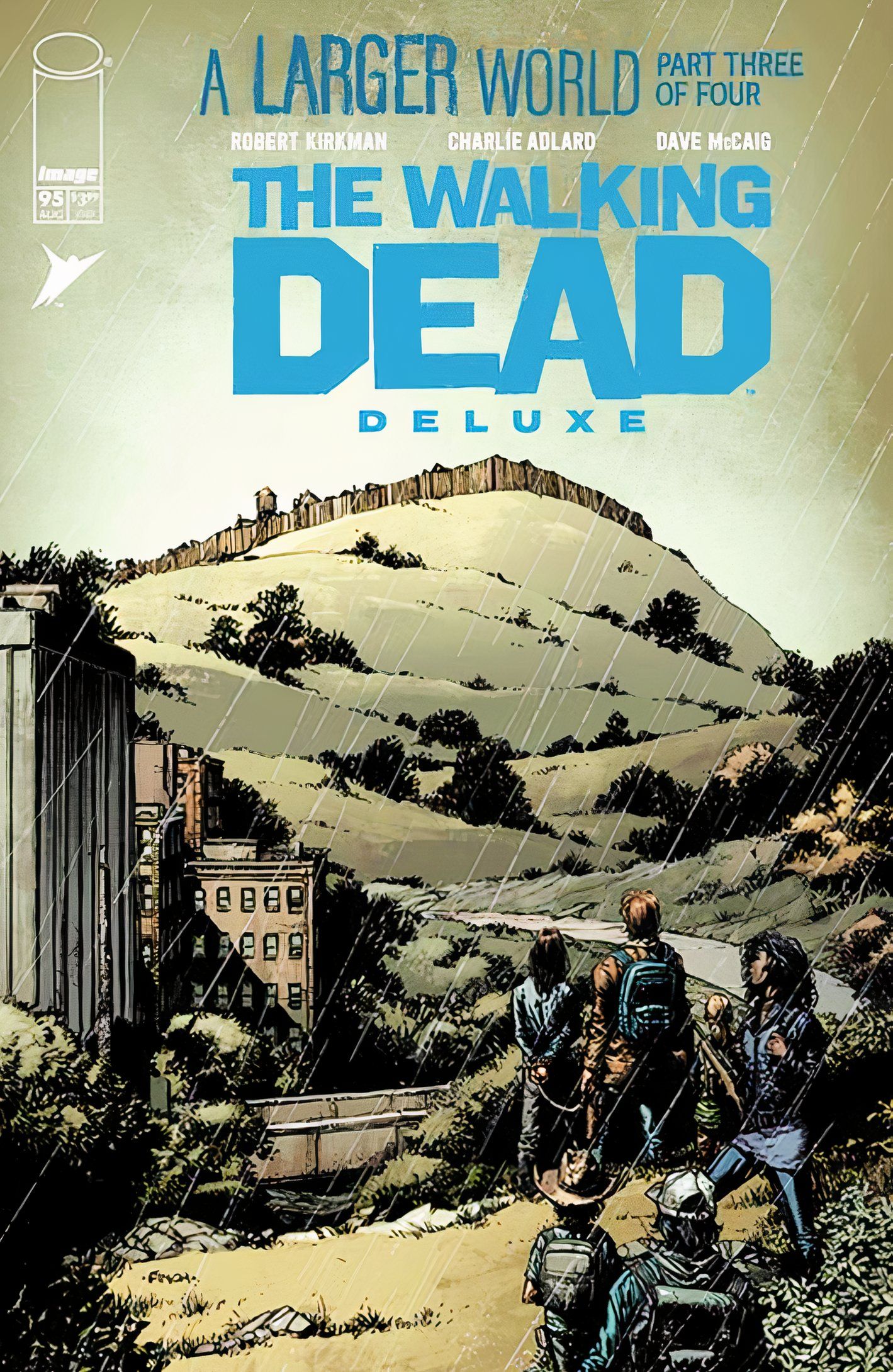Summary
- While some fans considered Rick Grimes' reaction to his wife Lori's death a plot inconsistency, Walking Dead creator Robert Kirkman explained that it was, in fact, a display of character growth.
- Robert Kirkman clarified Rick's actions after Lori's death, in contrast to how he responded to Shane's death, highlighting the change in Rick's priorities over time, as he became the zombie outbreak's consummate survivor.
- The Walking Dead Deluxe #95 reprints the issue's original letters page, providing insight into fan reactions to the progression of the comic story as it was originally published.

Article contains intense imagery & discussion of death.
The Walking Dead creator Robert Kirkman offered a counterarguement to fans who considered it a "plot hole" that Rick Grimes didn't return to the prison to retrieve his wife Lori's body after her death, with the author noting that this was, in fact, intended to signify growth for the character.
The Walking Dead Deluxe #95 – written by Robert Kirkman, with art by Charlie Adlard – features the original letters page, printed alongside the issue when it was first released in 2012. The great thing about revisiting the series' old letters pages has been the insight it has provided into how fans were reacting to Kirkman's zombie epic as it was released.

In this case, Kirkman responded to a fan's question about the difference between Rick's response to Shane's death, and his later response to his wife's shocking demise, explaining that it showed progression for Rick's character.
Robert Kirkman Clarifies The "Plot Hole" Surrounding Rick's Response To Lori & Judith's Death
The Walking Dead Deluxe #95 – Written By Robert Kirkman; Art By Charlie Adlard; Color By Dave McCaig; Lettering By Rus Wooten

By the time of The Walking Dead's gamechanging prison massacre, Rick fully recognized the futility of treating the dead as if they were in any way connected to who they had once been.
Lori's death was a pivot point in The Walking Dead, forever altering Rick Grimes as a character. Consequently, some readers questioned why there wasn't more of a parallel to Rick's actions in the wake of Shane's death early in the series; famously, Rick returned to the site where he'd buried Shane, dug him up, and killed the zombified version of his best-friend-turned-nemesis. According to Robert Kirkman, the reason the character didn't do something similar for Lori was indicative of the fact that he was further along in his character arc.
As Kirkman wrote in the letters page to The Walking Dead #95:
I would maybe take Rick's moving onward as a sign of how far he's come since he dug up Shane and killed him. Rick's values have definitely changed, and I would say that the events leading up to and including the raid at the prison basically gave us the Rick we have now.
In other words, the Rick Grimes who killed Shane, and then killed him again, was fundamentally different than the Rick that later left his wife and child's bodies behind in the wake of their tragic death. By the time of The Walking Dead's gamechanging prison massacre, Rick fully recognized the futility of treating the dead as if they were in any way connected to who they had once been. If he had not learned this lesson, he would not have survived as long as he did.
Rick Grimes' Reaction To His Wife Lori's Death Was A Dark Step Forward In The Character's Evolution
No More Looking Back
For Rick, by the time he lost his wife and baby daughter, there was no going back – and somewhat paradoxically, that was a clear sign that The Walking Dead's main character was moving forward.
It is understandable why some fans might not immediately recognize this as character progression for Rick; it might seem counterintuitive to some that the early version of the character buried his enemy, and then went a step farther by putting the zombified Shane down for good, but later didn't do the same for Lori. In a sense, this is indicative of how the world of The Walking Dead is one in which traditional, familiar value systems have been flipped on their head, if not dispatched entirely.
Over the course of the series, Rick Grimes became the consummate survivor. He dealt with his grief in his own way, notably in what is perhaps The Walking Dead's most emotionally devastating scene, in which Rick imagines talking to Lori's voice on the phone following her death. For Rick, by the time he lost his wife and baby daughter, there was no going back – and somewhat paradoxically, that was a clear sign that The Walking Dead's main character was moving forward.
The Walking Dead Deluxe #95 is available now from Image Comics.
|
The Walking Dead Deluxe #95 (2024) |
|
|---|---|
 |
|

The Walking Dead
The Walking Dead is a massive multimedia franchise that began with a comic book series created by Robert Kirkman, Tony Moore, and Charlie Adlard. The franchise gained widespread popularity with the launch of the television series The Walking Dead in 2010 on AMC, which chronicles the lives of survivors in a post-apocalyptic world overrun by zombies, referred to as "walkers." The success of the original show has led to numerous spin-offs, web series, video games, novels, and other media. The franchise explores themes of survival, human nature, and the breakdown of society in the face of an existential threat, making it one of the most successful and influential horror series of the 21st century.
-1723512278-q80.webp)


